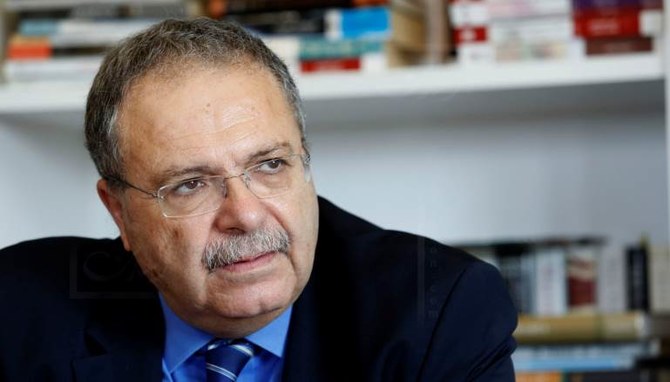BEIRUT: Lebanon is seen as facing arguably its greatest crisis a century after its creation as a modern state. In an exclusive interview with Arab News en Francais, Tarek Mitri, academic and former minister, touched on contemporary pressing issues in light of the Sept. 20, 1920, Greater Lebanon proclamation by French mandate authorities.
Q. Is Greater Lebanon still viable?
A. It all depends on what Greater Lebanon means. The country within its internationally recognized borders is not threatened. It will not be divided into 16 countries, nor is there a chance to return to Mount Lebanon. Lebanon will not be cut off from the regions that were attached to it in 1920. All this talk is unrealistic. The internationally recognized country within its current borders is not under threat.
Much more problematic is the fact that this Greater Lebanon, from 1920 until its independence and unfortunately after its independence, is a legacy of Ottoman history. It was a multi-community arrangement. We have created a country of communities. The 1943 National Pact (which defines the confessions of the head of state, the prime minister and the parliament speaker), is a pact between communities, between Muslims and Christians, Sunnis and Maronites.
This pact should become a citizens’ pact; we should be united as citizens and the future of the country should not always depend on the balance or imbalance between communities, thus weakening its unity. This is where the fragility of Greater Lebanon lies and has marked its history. Foreign policies affiliated with one country or another are also dependent on this inter-community game. But change is always possible.
Q. What could these changes be?
A. We must work for the non-alignment of Lebanon for the time being. This is certainly difficult, but the country’s public opinion — which goes further than non-alignment and distancing — heavily favors Lebanon's neutrality. The Maronite patriarch, Bechara Boutros Al-Rahi, has advocated formal neutrality sanctioned by the UN and recognized by neighboring countries. It may be an unrealistic project. But does it matter? What he said has generated interest among the Lebanese people and enjoys broad support. This suggests that the Lebanese have understood that their country cannot keep its unity, cannot solve its problems and cannot prosper properly unless it moves away from the region’s partisan politics.
Q. With the available information now, how could Lebanon achieve non-alignment?
A. It is a matter of balance of political forces within the country. A societal majority favors this non-alignment, but, unfortunately, the current political majority is not in favor. But when the societal majority becomes a political majority, we can get there. Although I am skeptical, the protest (which started in October 2019), the youth’s uprising and the solidarity of the Lebanese beyond religious communities give us hope. In addition, Lebanon’s friends – Arabs and Westerners alike – tell us that the country’s economic and political recovery calls for such non-alignment.
Q. What in your opinion is the greatest crisis in the history of Greater Lebanon?
A. It is hard to compare, but I think it is the current crisis. It is not so because it is recent. The difference between the current crisis and the previous ones is that it indicates a total collapse of the country, whether economically, politically or socially. During past crises and the civil war, the economy was doing well and the banks were doing well, despite fluctuations in the exchange rate of the Lebanese pound.
The country had managed to quickly redress the imbalances in the economy. Today, there is total collapse in the economic and financial systems. The crisis is more acute and more general now than it has been for the past hundred years.
Greater Lebanon has not been a pleasant journey. Countries that have experienced great crises have managed, through political change and democratization, to turn the page. Unfortunately, this is not the case in Lebanon, where we relive the same conflicts over and over again, because the political class owes its very existence to intercommunal tensions.


















